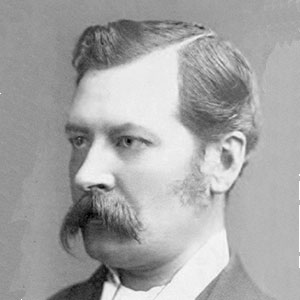
Arthur O'Shaughnessy
14.03.1844 - 30.01.1881
British poet and herpetologist
Arthur William Edgar O'Shaughnessy (14 March 1844 – 30 January 1881) was a British poet and herpetologist of Irish descent, born in London. He is most remembered for his ode beginning with the words "We are the music makers, /And we are the dreamers of dreams" which has been set to music several times.
Life
At the age of seventeen, in June 1861, Arthur O'Shaughnessy received the post of transcriber in the library of the British Museum, reportedly through the influence of Sir Edward Bulwer Lytton. Two years later, at the age of nineteen, he became a herpetologist in the museum's zoological department. From 1874 until his premature death in 1881 he described six new species of reptiles, and after his death he was honored in the specific name, oshaughnessyi, of four new species of lizards described by Albert Günther and George Albert Boulenger.
However, O'Shaughnessy's true passion was for literature. He published his first collection of poetry, Epic of Women, in 1870, followed two years later by Lays of France in 1872, and then Music and Moonlight in 1874. When he was thirty, he married and did not produce any more volumes of poetry for the last seven years of his life. He died at age 36 from a "chill" after walking home from the theatre on a rainy night. His last volume, Songs of a Worker, was published posthumously in 1881.
The artists Dante Gabriel Rossetti and Ford Madox Brown were among O'Shaughnessy's circle of friends, and in 1873 he married Eleanor Marston, the daughter of author John Westland Marston and sister of the poet Philip Bourke Marston. Together, he and his wife wrote a book of children's stories titled Toy-land (1875). They had two children together, both of whom died in infancy. Eleanor died in 1879, and O'Shaughnessy himself died in London two years later from the effects of a "chill." He is buried in Kensal Green Cemetery.
The anthologist Francis Turner Palgrave in his work The Golden Treasury declared that of the modern poets, despite his limited output, O'Shaughnessy had a gift in some ways second only to Tennyson, and "a haunting music all his own." He was also alluded to by Neil Gaiman in his extremely popular series The Sandman in the guise of the envoy of the Endless, Eblis O'Shaughnessy.
Ode
By far the most noted of any his works are the initial lines of the Ode from his book Music and Moonlight (1874).
Sir Edward Elgar set the ode to music in 1912 in his work entitled The Music Makers, Op 69. The work was dedicated to Elgar's old friend Nicholas Kilburn and the first performance took place at the Birmingham Triennial Music Festival in 1912. Performances available include: The Music Makers, with Sir Adrian Boult conducting the London Philharmonic Orchestra in 1975 (reissued 1999), paired with Elgar's Dream of Gerontius; and the 2006 album Sea Pictures paired with The Music Makers, Simon Wright conducting the Bournemouth Symphony Orchestra. Zoltán Kodály (1882–1967) also set the ode to music in his work Music Makers, dedicated to Merton College, Oxford on the occasion of its 700th anniversary in 1964.
This article uses material from the Wikipedia article Abraham Cowley, which is released under the Creative Commons Attribution-Share-Alike License 3.0. ( view authors).